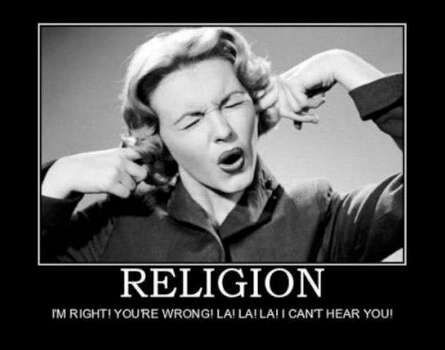 These days there's a fair amount of pop memetics out there.
Know Your Meme is one of the best-known examples, but these
days, most news channels give some coverage to memes and there's
plenty of idle speculation about topics such as why some
memes are more successful than others. Marketing is another
common source of speculative pop memetics.
These days there's a fair amount of pop memetics out there.
Know Your Meme is one of the best-known examples, but these
days, most news channels give some coverage to memes and there's
plenty of idle speculation about topics such as why some
memes are more successful than others. Marketing is another
common source of speculative pop memetics.Taking a historical perspective, it seems likely that memetics has been hindered by real scientists not wanting to associate themselves with the work of folks such as Richard Brodie and Aaron Lynch.
Evolutionary psychology illustrates the down-side of popular interpretations producing inaccuracies. There's a whole bunch of scientists that view evolutionary psychology as a giant cess-pool of poor-quality scientific speculations. While I don't think this is a defensible attitude towards evolutionary psychology, I can understand that looking down on dodgy science probably plays a signalling role for scientists.
Should memetics take care to avoid the fate of evolutionary psychology in this area? I'm inclined to think that a wealth of memetics "just so stories" are inevitable at this stage - and that there's not much that can be done about this.
Indeed, it seems to me that evolutionary psychology has suffered little from its reputation for consisting of just-so stories. Instead, if anything, controversy appears to have attracted attention to the ideas associated with the field. Sometimes, marketers claim that there's no such thing as bad publicity. Evolutionary psychology seems to illustrate this idea.
Memetics also seems to have considerable potential for controversy. Where evolutionary psychology focuses on human universals, memetics studies the causes of differences between humans. This is a potentially sensitive subject area touching on areas such as inequality, xenophobia, political differences and religion. One one hand this makes it all the more important to get the science in these areas right. However, it may also offers memetics controversy-based marketing opportunities. The recent piece of pop memetics This Video Will Make You Angrydescribes how warring memeplexes attract attention and energy of netizens. The term "meme" has does a good job recently of hitch-hiking - its way to success - by attaching itself to highly-spreadable viral content. Perhaps the term "memetics" can do something similar - by hitch-hiking on controversial scientific content relating to topics such as politics and religion.










No comments:
Post a Comment